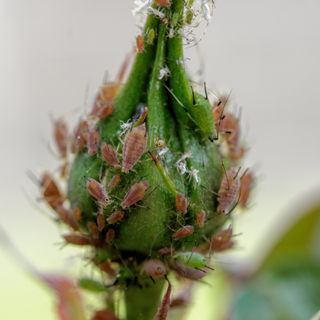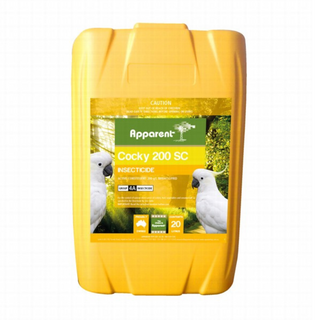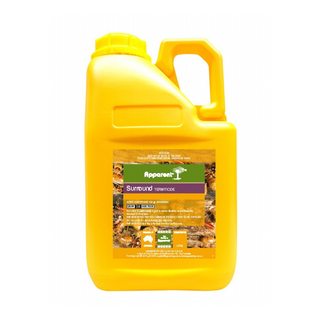Latin name: Aphidoidea
Aphids, also known as greenfly and blackfly, are sap-sucking pests that damage crops, of the superfamily Aphidoidea. They undergo a unique life cycle, with flightless females giving live birth to female nymphs, leading to telescoping generations. These insects breed rapidly, with winged females appearing later in the season to colonise new plants.
Some species have a cycle between two host plants, while others are generalists. There are around 5,000 aphid species, with 400 affecting crops and causing significant damage to agriculture, forestry, and gardens. Dairying ants have a symbiotic relationship with aphids, caring for them in exchange for honeydew.
Aphids are notorious pests in temperate regions, causing damage by sap-sucking and transmitting plant viruses.
Aphids also leave honeydew deposits and facilitate the growth of sooty moulds, disfiguring ornamental plants. Their ability to reproduce asexually and develop rapidly makes them ecologically successful organisms. They pose significant challenges for farmers, foresters, and gardeners, impacting crop yields and plant health.
Managing Aphids requires vigilance and proactive measures. Integrated pest management strategies, such as natural predators, insecticides, and targeted crop rotation, can help control their population. Regular monitoring, early detection, and prompt action are crucial for preventing infestations and minimising crop damage. Promoting biodiversity and maintaining a balanced ecosystem can also aid in aphid control by encouraging natural predators like ladybugs and lacewings.
Understanding Aphids' life cycle and behaviours is essential to develop effective pest control strategies. Ongoing research continues to explore innovative approaches, such as genetic modification and biological controls, to manage Aphid populations sustainably.
By staying informed, implementing appropriate management techniques, and seeking expert advice when necessary, farmers, foresters, and gardeners can mitigate the impact of aphids on crops and plants. We can safeguard our cultivated plants and maintain a healthy and thriving agricultural and horticultural environment.
SOLUTIONS:
- Systemic: Apparent Cocky
- Contact: Apparent Surround




